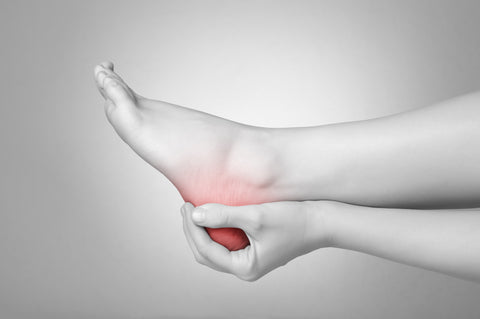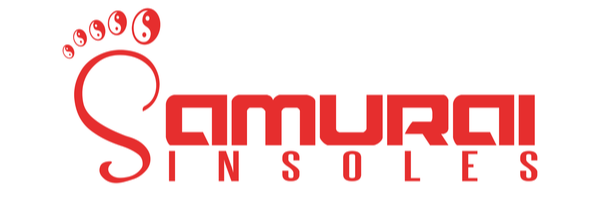
Do you experience chronic or periodic heel pain? You're not alone. Around 77% of Americans suffer from pain in their feet.
There are quite a few conditions that can result in heel pain. If you can figure out what the underlying cause is, you may be able to get rid of your pain.
Here are 7 common culprits of heel pain. This information may help you figure out what is causing your pain. Once you know the cause you can figure out what to do to get rid of it.
Plantar Fasciitis
There are two causes of heel pain that are most common. These are plantar fasciitis and Achilles tendonitis. So we'll talk about those two first.
Plantar fasciitis is an inflammation of a band of tissue that runs along the bottom of your foot. It connects the heel bone to your toe bones, called plantar fascia.
This condition causes sharp, stabbing pain right under the heel. It is most painful after the foot has been at rest. This could be when getting up in the morning or after having been seated for a long time.
There are several things that can bring on plantar fasciitis. These include
- Sudden, intense physical activity
- Standing for too long on concrete or other hard surfaces
- Flat feet and other foot mechanics problems
- Tightened calf muscles
- Weight gain
- The wrong footwear
If this sounds like your problem, don't worry. The right physical therapy regimen is very effective in treating plantar fasciitis.
Using properly fitting footwear and/or quality insoles can help a lot with the healing process. Plus, it's a great way to prevent this problem from happening again.
Achilles Tendinitis
Achilles tendinitis occurs when you overuse the Achilles tendon. This tendon connects the calf muscles to the heel bone.
Pain often begins in the back of the leg right between the heel and the calf. You will feel it most often after intense activity. Though sometimes it may be stiff and sore after rest and work itself out as you move.
As an overuse injury, it tends to happen when increasing your physical activity level all of a sudden. It often happens in people that only exercise on the weekends. Older people tend to be more susceptible because the tendon weakens with age.
Achilles tendinitis is relatively easy to treat. In most cases, you can follow an at home care regimen to care for the injury. Just as with plantar fasciitis, proper footwear or insoles can both treat and help prevent this problem.
Achilles Tendon Rupture
If the pain becomes severe, it's possible that the tendon has actually torn. Sometimes you may even hear it tear, usually during intense physical activity.
Often you won't be able to walk very well. The foot will be unable to bend down to push off the toes to take a step. It goes without saying, but you won't be able to stand on your toes either.
Surgery is often necessary to repair an Achilles tendon rupture, but not always. It depends on the injury but there are effective nonsurgical treatment options.
Heel Bursitis
Bursitis is another type of inflammation that can cause heel pain. There are small sacs filled with fluid in your joints. Their purpose is to cushion the joint and make movement pain-free.
These little sacs (bursae) can get inflamed and cause significant pain. Repetitive motion tends to be the culprit that gets these inflammations started. The right support for your feet will go a long ways toward avoiding this problem.
This problem can be difficult to pinpoint because the Achilles tendon can swell up and draw attention. But, unlike an injury to the Achilles tendon, the pain does not ease throughout the day. In fact, it usually worsens quite a bit as you use and continue to stress the joint.
Heel Bumps
Heel bumps is a common cause of heel pain in teenagers. You may also hear them referred to as "pump bumps". This is because they can occur as a result of wearing high heels too early.
The heel bone does not fully form until adulthood. Thus, excessive rubbing (or wearing high heels) can cause extra bone to form.
But don't go out and buy lots of special shoes. It is more cost effective to invest in a pair of insoles that you can change from one shoe to the next.
Stress Fractures
Stress fractures are tiny, hairline cracks in the bones. They often occur as a result of repetitive, intense physical activity. Lots of running or jumping, particularly on hard surfaces, can cause this problem.
People with certain factors are at higher risk of fracturing their feet. These could include diseases like osteoporosis or foot problems like high arches. Even eating disorders can contribute because malnourished bones tend to be weaker.
You will have to take it easy and wait for these fractures to heal. If you don't give them time to heal correctly, you could experience chronic foot pain for years. Be sure to invest in proper footwear or insoles to avoid this problem in the future.
Osteomyelitis
Osteomyelitis is a fancy word for a bone infection. This condition can be difficult to pinpoint. Symptoms often make the condition look like other problems.
If you experience heel pain in conjunction with fever and chills, this could be the problem. The fever indicates that you have an infection. Keep in mind that osteomyelitis is not always accompanied by fever.
Bones can get infected a couple of ways. The infection can travel through your bloodstream and settle in the bone. Or the bone can be exposed directly to pathogens through an injury.
If it gets bad enough, part of the bone may die. In that case, you may need surgery to extract the dead parts of the bone.
Dealing with Heel Pain
This is just a sampling of the many things that can cause heel pain. But it may give you an idea what you are up against.
As you can see, a common underlying cause is not wearing proper footwear. In many cases, something as simple as adding the right insoles to your shoes can ease your pain. Unless you have something severe like osteomyelitis you can often resolve your problem on your own.
Feel free to contact us to find out more about the right insoles for your feet. Your feet will thank you!




